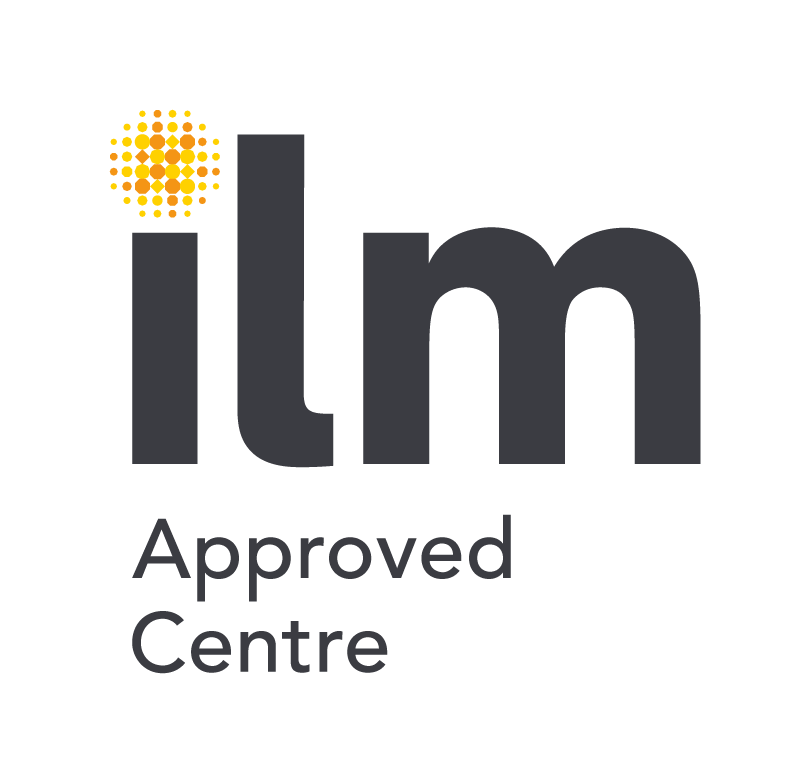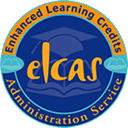Foundations of Effective Coaching & Mentoring ‑ ILM Level 3


Course Overview
This course leads to a qualification:
Level 3 in Effective Coaching & Mentoring

| Course Summary | |||
|---|---|---|---|
| Tutor-led Learning: | 3 days training | Total CPD Earned: | 21 hours |
| CPD Accredited by: | ChTC CPD | ||
| Qualification Registration: | ILM level 3 | ||
| ILM Level 3 Qualification Support Summary | |
|---|---|
| Supporting Feature | Certificate |
Lay the Groundwork for Impactful Coaching and Mentoring
Our Foundations of Effective Coaching & Mentoring programme is designed to equip you with the essential skills, tools, and techniques to begin or enhance your coaching and mentoring practice.
Whether you’re new to coaching or looking to formalise your approach, this programme will help you harness the power of coaching and mentoring to create meaningful change in your professional environment.
Programme Overview
Delivered over three immersive days, this hands-on programme builds your confidence and capability to operate as an effective coach or mentor.
You’ll then apply your learning in real-world settings, working with clients, reflecting on your experience and mapping out your ongoing professional development journey.
Expert-Led Learning
Our programmes are grounded in the latest thinking and best practice in coaching and mentoring. The ChTC tutor team are not only experienced practitioners but also active contributors to industry research and thought leadership.
They bring a unique blend of real-world experience, academic insight and a deep passion for developing others.
Accreditation
✔ ILM Level 3 Accreditation in Effective Coaching and Mentoring
To gain certification, participants must:
- Attend all three training days
- Complete the required coaching or mentoring hours
- Participate in tutorials and supervision sessions
Next Available Course
-
Duration: 3 Days
12 May 2025
14 May 2025
-
In PersonVirtualBlended
| Pricing & Qualification Options | ||
|---|---|---|
| ILM Level 3 in | ||
| Effective Coaching & Mentoring | ||
| Option | In Person | Virtual |
| Certificate | 1350 | 1245 |
| Prices exclusive of VAT | ||
About the programme
-
Benefits for Individuals
- Gain a clear understanding of what it takes to be an effective coach or mentor
- Explore the roles, responsibilities, and ethical considerations of professional coaching and mentoring
- Learn how to structure and manage coaching and mentoring conversations using proven, evidence-based models
- Apply your skills in real coaching or mentoring sessions, with support and supervision
- Reflect on and evaluate your performance to continuously improve your practice and build confidence
Benefits for Employers
- Introduce or strengthen coaching and mentoring practices that drive performance and support development
- Ensure the individuals developed as coaches and mentors are equipped with the skills, knowledge and understanding they require
- Cultivate a coaching and mentoring culture by developing confident, capable practitioners who support others across the organisation
-
Daily Programme Structure
Time Event 09:00 Registration 09:30 Session A 11:00 Morning Break 11:15 Session B 12:45 Lunch Break 13:15 Session C 14:45 Afternoon Break 15:00 Session D 16:30 Day End Important information:
- The Daily Programme Structure table, provides a useful overview of approximate timings for each day.
- On the first day of a course registration takes place from 09:00 on subsequent days (if applicable), please arrive or sign in remotely by no later than 09:20
- The programme commences at 09:30 daily,
- Each Guided Learning session is approximately 90 minutes in duration (precise timing will be content specific).
- Breaks are facilitated between sessions, however you are free to stretch your legs or grab some refreshements at any time.
- Lunch is taken at approximately 12:45 for 30 Minutes.
- We aim to finish activities at approximately 16:30 daily.
Greater detail regarding the each days planned topics, are shown in the Day Planner below.
-
Day Planner - Level 3 Programme
-
Day One - Firm Foundations
- Welcome & introductions
- Effective contracting in coaching and mentoring
- Group contracting exercise
- Developing core skills
- Rapport factors
- Building trust
- Listening with curiosity
- The coaching and mentoring continuum
- Rogerian principles – unconditional positive regard
- Tutor led coaching demonstration with group observation and feedback
- Introduction to GROW coaching / mentoring model
- GROW based coaching practice
-
Day Two - Developing Practice
- Developing ourselves as reflective practitioners
- Reflective practice tools
- Practical reflection session exploring day 1 coaching
- Starting to understand our clients
- Adult learning theory
- OARS Framework
- Johari Window
- Logical levels
- Kubler-ross change curve
- Intrinsic motivation
- Developing powerful questions
- Transactional and transformational questions
- Group exercise to develop questions
- Questioning practice session & feedback
- Introduction to Wheel of Life
- Observed wheel of life coaching practice
- Reflections and journalling
-
Day Three - Building Our Professional Practice
- The knowledge, skills and capabilities of professional coaches and mentors
- Group exercise
- Professional practice fundamentals
- Boundaries in coaching and mentoring practice
- The role of supervision in coaching and mentoring
- How we ‘show up’ – considering coaching presence
- Ethical practice
- Developing goals and objectives with clients
- Individual and organisational considerations
- Using ‘well-formed outcomes’ to set meaningful goals
- Well-formed outcomes practice session & feedback
- The use of metaphor in coaching practice
- Metaphor based coaching practice with observation and feedback
- Reflections and journalling
-
Day One - Firm Foundations
-
Assignments & Assesment
Once you’ve completed the taught module, you are automatically registered with the ILM and can begin working towards your qualification.
You will have access to resources from both the ILM and from the ChTC Advantage LMS and this is where assignments are submitted to us for marking. See the LMS tab for full details.
Here’s what’s involved:
1. Written Assignments
You’ll initially complete two written assignments:
• One exploring best practice in organisational coaching
• One exploring best practice in organisational mentoring
2. Choose Your Pathway
Next, you’ll decide on your development focus — coach or mentor. This is an essential step, as your practical and reflective work will centre around this choice.
3. Practical Experience
Based on your chosen pathway, you’ll undertake a minimum of 12 hours of coaching or mentoring practice, working with no more than two clients.
4. Reflective Journal and CPD Plan
To complete your qualification, you’ll submit a reflective journal and a Continuing Professional Development (CPD) plan, capturing your learning and growth as a coach or mentor.
5. Supervision and Support (see relevent tabs for further details)
We provide group tutorial support sessions to help you successfully complete the assessment and assignment components of your qualification.
Once your practice begins, you’ll take part in 2 hours of coach/mentor supervision to support your development.
Understanding Assessment Criteria (ACs)
Each assessed piece of work, including written assignments, is structured around Assessment Criteria (ACs). These criteria break down the required knowledge, understanding, and evidence needed to meet the qualification standards. Full guidance on how to meet each AC is provided both within the course content and on the Learning Management System (LMS), helping you understand what’s expected and how to structure your responses effectively.
Your assignment units
-
Whether you attend in person or join virtually, you are part of a fully live and interactive experience, where your presence and participation are essential.
This programme is accessible in the following modes:
In-person
Our in-person courses are designed to provide an immersive learning experience that fosters direct interaction with instructors and peers. You'll benefit from a dynamic classroom environment where ideas are exchanged freely, hands-on activities reinforce your learning, and real-time feedback enhances your understanding. The personal connections you build in our face-to-face sessions create a supportive community that extends beyond the classroom, offering valuable networking opportunities and collaborative projects. With access to our cutting-edge facilities and resources, attending in person allows you to fully engage with the course material and participate in spontaneous discussions that can enrich your educational journey.
Virtual Classroom
Our virtual classroom brings the quality and engagement of in-person learning to you, wherever you are. Leveraging the latest in online education technology, our virtual courses are designed to be interactive and engaging, with live lectures, real-time discussions, and collaborative activities that mirror the in-person experience. You'll have the flexibility to join from the comfort of your home or office. Our virtual platform ensures that distance is no barrier to accessing high-quality education, with all the tools you need to succeed, including digital resources, virtual breakout rooms for group work, and direct communication with instructors and fellow participants.
Hybrid
Some of our programs offer the same live training to both in-person and virtual participants, ensuring a cohesive and integrated learning experience for all. As we develop our skills in various co-coaching sessions, in-person attendees will have the unique opportunity to coach both online and face-to-face, bridging the gap between traditional and digital environments. This dual-mode coaching experience is invaluable in today's world, where the ability to navigate and excel in both physical and virtual spaces is increasingly essential. By mastering the art of hybrid coaching, you’ll gain practical skills that are not only relevant but critical for thriving in a rapidly evolving professional landscape.
Blended
This flexible learning model allows you to tailor your educational experience to seamlessly fit your lifestyle, offering the best of both in-person and remote participation. With the blended approach, you have the freedom to attend sessions on campus when you can, enjoying face-to-face interactions and hands-on experiences, while also having the option to join remotely whenever needed. This adaptability ensures that your learning remains consistent and uninterrupted, regardless of your location or schedule. Whether you’re balancing work, travel, or other commitments, the blended model empowers you to stay engaged and fully participate in your education on your terms.
-
ChTC CPD

ChTC CPD is the trust mark we add to our training to demonstrate the high value of a learning experience for our participants.
CPD is the ongoing process through which professionals maintain and enhance their knowledge, skills, and competencies throughout their careers. Whilst CPD is mandatory only in some industries such as finance, healthcare, law and others, continuous learning on and for work is part of the natural competence development process for all individuals engaged in any professional activity.
It is not about the validity of our professional knowledge; instead, it focuses on our ability to deliver training that enables our participants to achieve their professional goals, but these rely on them being added .
-
The Office of Qualifications and Examinations Regulation

The Office of Qualifications and Examinations Regulation (Ofqual) regulates qualifications, examinations and assessments in England.
For your convenience, we provide the related OFQUAL Qualification numbers and links to the gov.uk website where this data is maintained. From that page, the awarding organisation may be confirmed and access to the relevent specification is also provided.Qualification OFQUAL Link Certificate 60337333
Upcoming Course Dates
Spring Course
-
Duration: 3 Days
12 May 2025
14 May 2025
-
In PersonVirtualBlended
Late Summer Course
-
Duration: 3 Days
8 September 2025
10 September 2025
-
In PersonVirtualBlended
Late Autumn Course
-
Duration: 3 Days
1 December 2025
3 December 2025
-
In PersonVirtualBlended